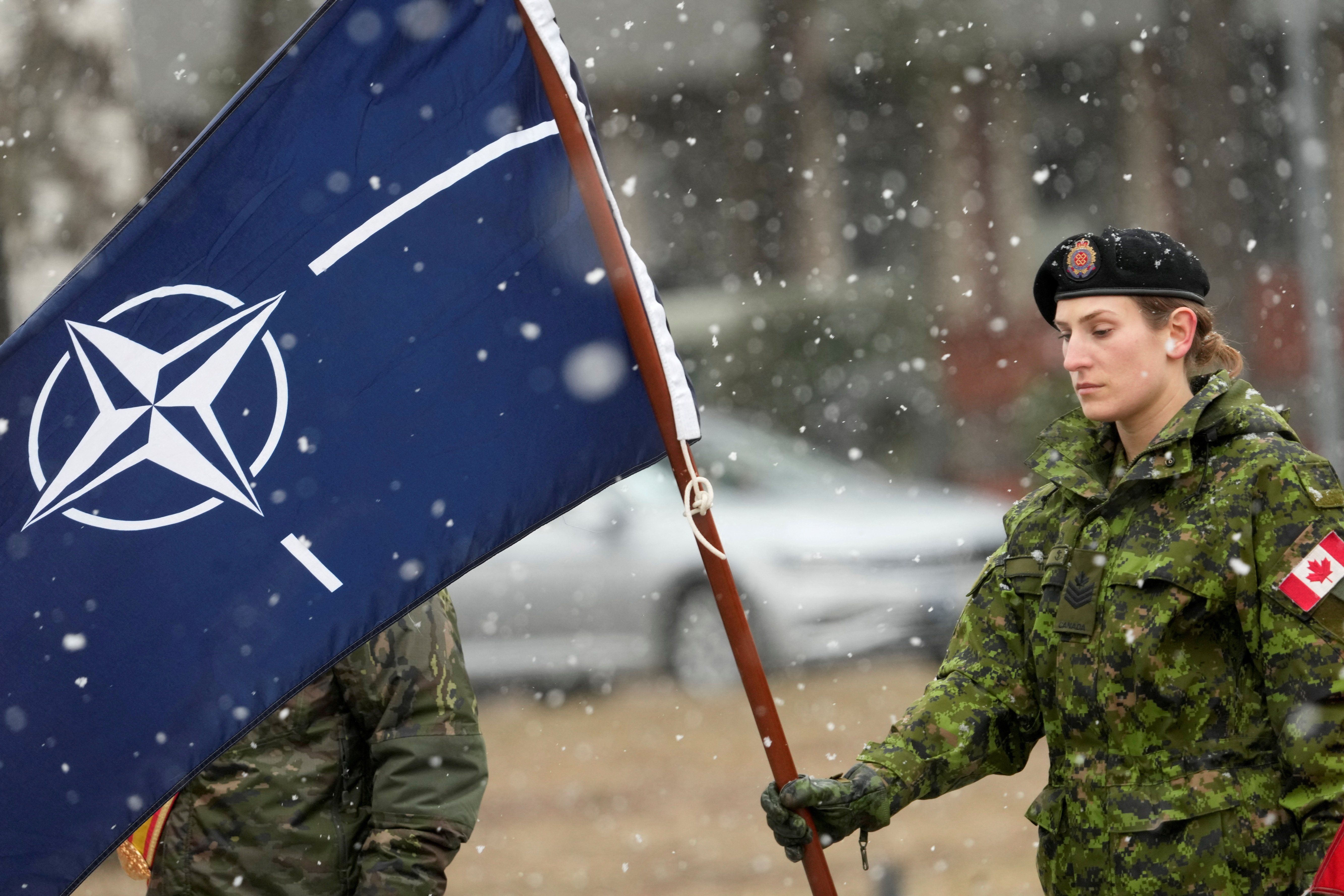Canada is a NATO laggard – but it’s far from alone
The aging defense league is finding a new raison d’etre battling Russian aggression in Ukraine. But Canada still falls short of the 2% GDP military spending goal that NATO Secretary General Jens Stoltenberg recently said is set “not as a ceiling but a floor, a minimum, that we should all meet.”
A recent NATO report estimates that Canada’s share of defense spending declined against its GDP to 1.27% in 2022, down from 1.32% in 2021 and well shy of the 2% target. Several members spend less than the target, but Canada falls toward the mid-to-bottom of that list.
In 2022, the US topped the list at 3.47% of GDP. The US routinely nudges Canada to spend more on defense. Last month, its ambassador to Canada said he was “hopeful” the country would hit the NATO target.
Canada has no plan to reach the 2% target, and its latest budget is still light on defense spending. But the government does tout that it has the sixth-largest NATO defense budget and is a top contributor to the alliance’s common fund. Canada also spent billions on new fighter jets and is making investments in northern and continental defense. NATO doesn’t penalize states that don’t hit the 2% target – and it’s hard to imagine Canada getting thrown out of the club, so all it can do is name and shame in the hope that Canada starts to pull its weight.
Betting on critical minerals
If you don’t know the term “critical minerals,” it’s time to learn. You’re going to hear it a lot in the years ahead. These are minerals of strategic value to a country’s economic health and security. Both Canada and the US use that definition, but the Canucks add a flourish, referring to them as “the building blocks for the future of our green and digital economy.”
They include copper, graphite, cobalt, lithium, and several others necessary for building and operating a contemporary economy. They power everything, from transportation and energy to digital infrastructure and the so-called “green economy.”
Canada is full of critical minerals. Several provinces and territories are mined for cobalt and copper. Saskatchewan is home to uranium and potash, there’s graphite in Ontario and Quebec, and fluorspar in Newfoundland and Labrador. Experts say the capital-intensive mining industry needs and expects (!) subsidies to extract them. The government’s critical mineral strategy will offer some. PM Trudeau’s March budget included an investment tax credit for critical mineral exploration and investor subsidies.
In the US, meanwhile, the Inflation Reduction Act includes critical mineral measures, such as billions in federal loan money, as well as its own tax credits.
The need for critical minerals is booming on both sides of the border – as is trade. In 2020, mineral trade between the US and Canada hit nearly $96 billion, and by 2030, global mineral trade is estimated to hit $567 billion.
Will Canada and the US hit a recession?
Both the Bank of Canada and the Fed are prepped, but the Northern neighbor is more optimistic than the Southern one. On Wednesday, the Bank of Canada held its interest rate at 4.5%, a move it had signaled for some time. The bank says a soft landing has become more likely as it expects Canada to avoid a recession over the next three years while inflation slows and moves toward the 2% target — though it is still a long way off. The upshot? The economy may be edging back toward a pre-pandemic “normal.” But, warns Bank Governor Tiff Macklem, the current restrictive monetary policy may need to stay in place a while longer. Still, by the gloomy climate standards, that’s pretty darn optimistic.
The US Federal Reserve, meanwhile, is grouchy. It hiked its rate from 4.75% to 5% in March, its ninth consecutive increase. On Wednesday, the US Bureau of Labor Statistics released a report showing that inflation fell to 5%, with core inflation at 5.6%. That’s good news, but it’s unlikely to change the Fed’s course, and another rate hike is expected in May.
So, watch your banks and your dollars for signs of recession. And even if Canada is optimistic, the US pessimism will likely put downward pressure on the Canadian dollar, particularly if Canadian rates remain steady. A weaker Canadian dollar means more expensive imports from the US. But the loonie notably held its own on Wednesday.
What does it all mean in the big picture? Cooling inflation rates in the US, Canada, and Europe offer hope that the rate-hike cycle could soon end. But the UK saw an unexpected inflation jump in mid-March, a reminder to temper — or deflate – expectations.
